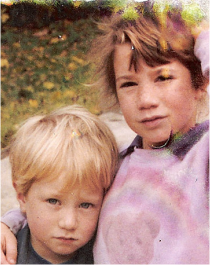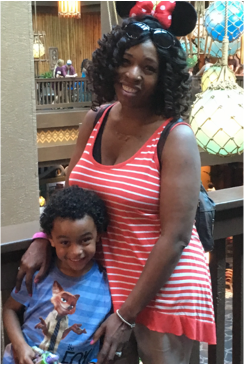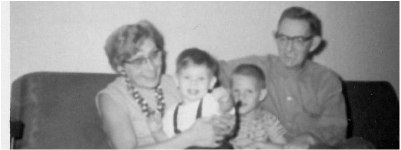
Here's what we know. When children are sexually abused, there are specific, expected emotional and behavioral results. When children are physically abused or neglected, there are specific, expected emotional and behavioral results. When children are emotionally abused, there are specific, expected emotional and behavioral results. These "results" reveal themselves at varying times over the course of a person's lifetime. They have varying impacts on a person's life.
When I worked at a county mental health clinic, I learned some surprising features about abuse. When kids were physically and/or sexually abused, their wounds and needs were attended to by empathic, caring people. Their abuse was obvious. Emotional abuse is not. Kids are embarrassed to admit to the kinds of words their parents use on them.
The causes of physical abuse are obvious. Buckles and fists leave marks on the body, but what kinds of "marks" are evident for heart-breaking words? I actually had one little boy tell me he'd rather his mother hit him than call him stupid. "At least when she hits me, I get mad. When she says terrible things to me, I get sad". His response confirmed what I "thought" I knew about how children interpret adult-parent-inflicted pain.

If we tell them they're stupid, lazy, ugly or whatever and if we tell them even just a few times, they'll take your words and turn them into a damaged version of themselves. Watch them. They'll start to make statements about themselves. "Why did you do that?" The answer? "I'm stupid."
This is not an easy process. Your "song" has been woven into the fabric of "who" you are, so it may not be easy to catch yourself being critical and negative in your self-appraisal.
Educate yourself. What are the ways, using teeny-tiny baby steps, you can change your interaction with your child to make the relationship more supportive and nurturing and less punitive?
Do you understand the developmental issues that kids experience that you may mistake for behavioral problems? A quick internet search can bring you up to speed fast. You can also read about development on DrClaudia.net! Want to know about the "normal" behavior of 8 year olds? Spend about 10 minutes online and see what is "typical" and what is "atypical". If you have knowledge about the "why" behind the "what", you are less likely to take their behavior personally. They're really not behaving in a way designed to drive you crazy...it just feels that way.
You need a few shortcuts because you don't have a lot of time to sleep much less read about parenting. Start with your parenting language. This process will not happen overnight. Teeny tiny baby steps. Pick the one thing you say to your child that is not "healthy or helpful" and change that one thing. Then, move on to the next thing.
I am not a huge movie goer. The last film I saw in the theater was The Perfect Storm which was released in 2000. Movies can have powerful messages. In the movie, Six Days, Seven Nights, Harrison Ford, a tourist shuttle pilot, was teaching Anne Heche how to fly a small plane when he was injured after they crash landed and were escaping from pirates. When she grabbed the wheel, he quickly cautioned her, "Small corrections". That is the essence of making change in life. Small corrections.
I recently watched The Martian. Amazing movie. At the end, when Matt Damon was instructing a group of would-be astronauts about the nature of survival. He said what many of us say in the "helping professions" and that is, you start by solving problems. Notice I didn't say solve them all at once. Solve one. Move onto the next one. Solve one, move on. That's what you when you want to improve anything. You eat a bit less and you move a bit more to lose weight. You smoke one less cigarette each day per month until you've trained your body to not be addicted. Those people who make many New Year's resolutions are doomed to fail. Pick a goal, achieve it and move onto the next one!

Sit down with your child and explain what happened, apologize and assure improvement ("We can do better."). Don't give them "something" as compensation, but offer some additional time to spend together doing an activity that you both enjoy. Don't teach them to hold you as an emotional hostage. Unhealthy. Ugh.
Parenting is a team sport consisting of you and your kid. They have to be willing to be parented and you have to be willing to parent. They don't know it all and neither do you. By repairing the rupture, they will come to trust you. You will set the model for apologizing, forgiving and moving forward. These are valuable adult skills. Show them how it is done. You're going to need this foundation as they make their way through adolescence.
As always, just do the best you can. TTFN, Claudia



